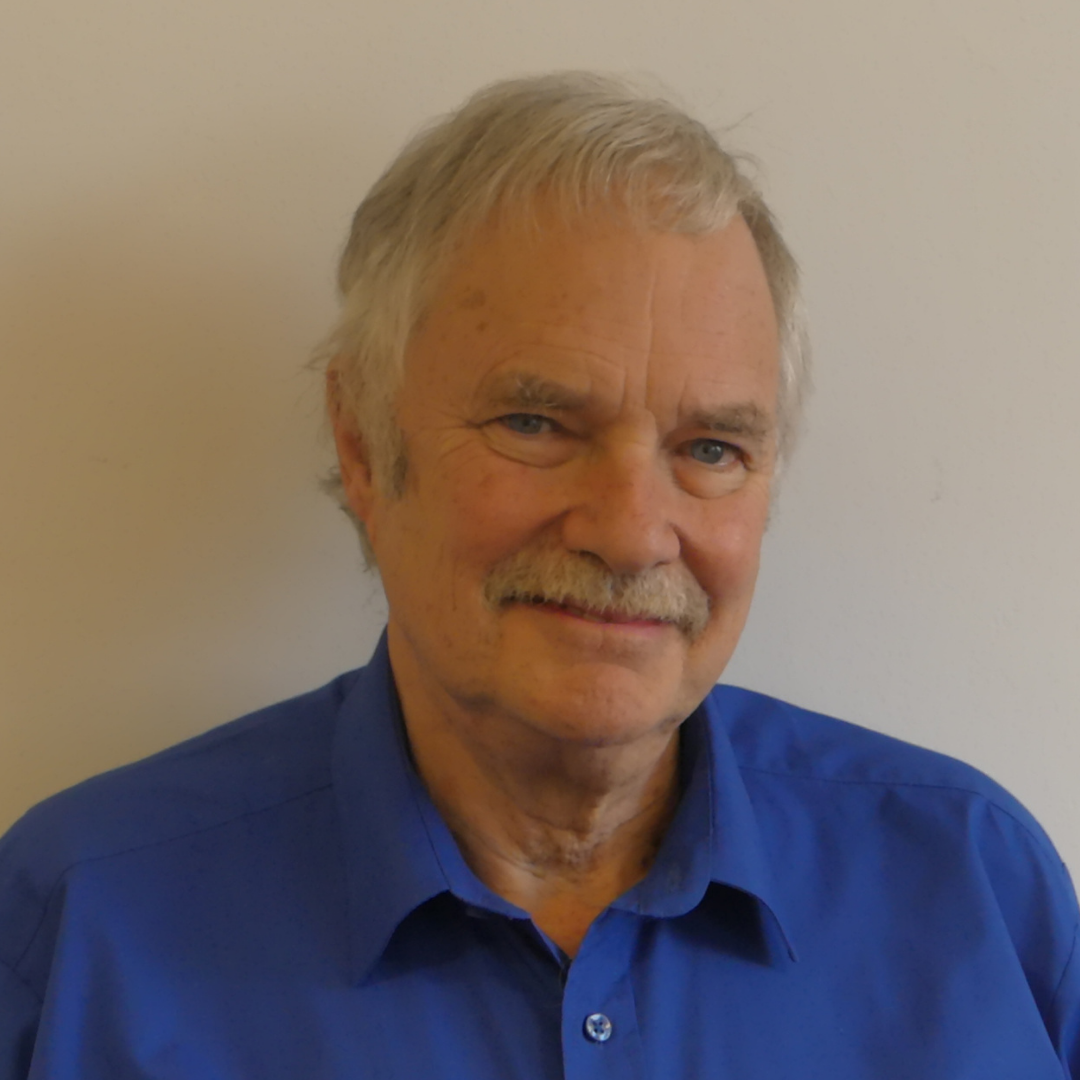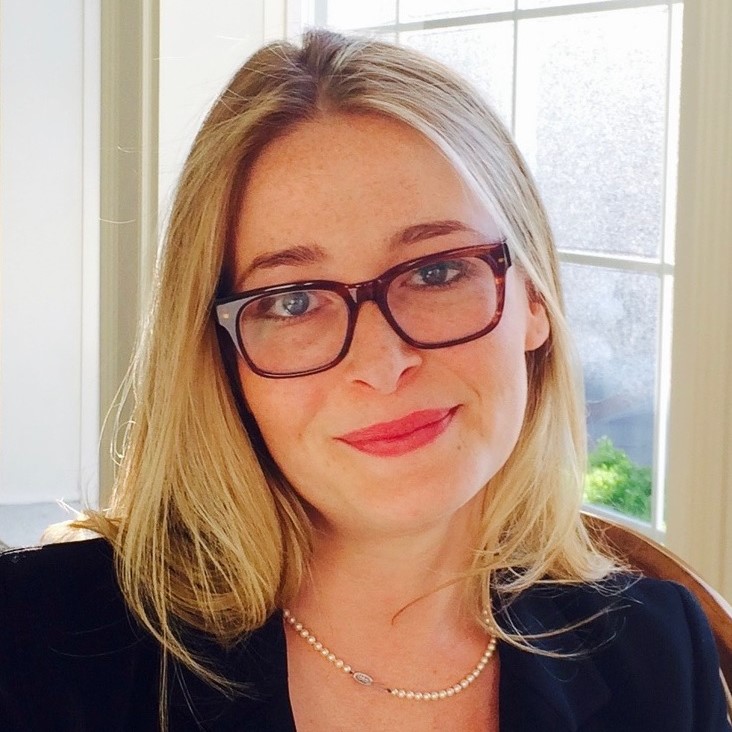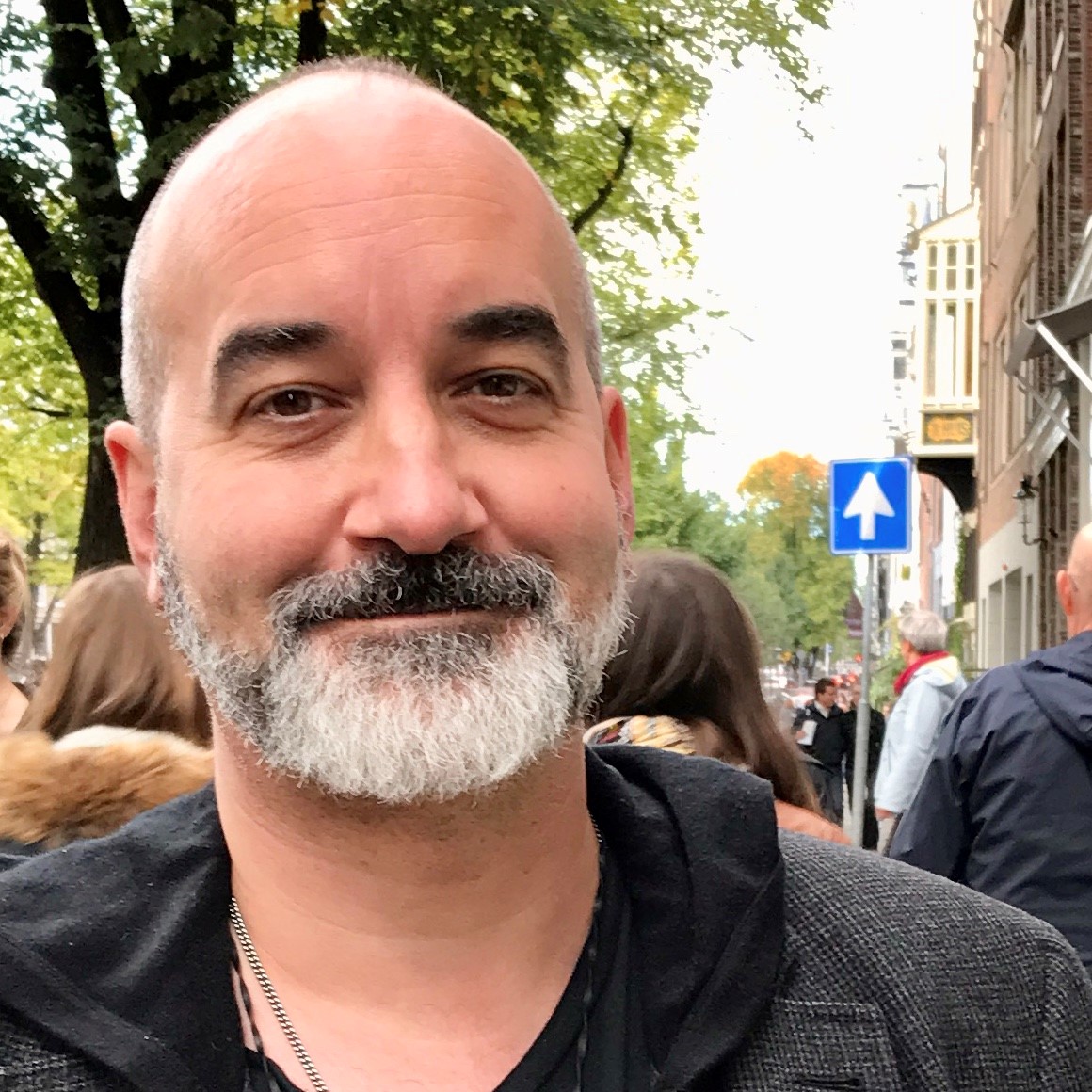Breathing Compassion into Evidence Based Therapy: Integrating CFT into your Contextual Behavioral Science Practice featuring CFT Founder, Dr. Paul Gilbert
Breathing Compassion into Evidence Based Therapy: Integrating CFT into your Contextual Behavioral Science Practice featuring CFT Founder, Dr. Paul GilbertBreathing Compassion into Evidence Based Therapy: Integrating CFT into your Contextual Behavioral Science Practice featuring CFT Founder, Dr. Paul Gilbert



Laura Silberstein-Tirch, Psy.D.
Sunday, June 5, 2022 - 8:00 a.m. to 12:00 p.m. UTC/GMT -7 (Pacific Daylight Time)
Psychotherapists all over the world know that mindfulness and compassion training can help clients transform their lives, but many are still in need of specific ways to bring the power of mindful compassion directly into their behaviorally oriented therapy practice? This workshop is designed to bridge the gap between your current practice and an evidence based, compassion-focused approach.
Compassion Focused Therapy (CFT) is a cutting-edge, evidence-based psychotherapy that takes the "third wave" of psychotherapy further, expanding the frontiers of contemplative psychotherapy by deliberate awakening our compassionate minds. For thousands of years, wisdom traditions have used mindfulness, acceptance and compassion based training as a platform to transform the mind. Developed by Dr. Paul Gilbert, CFT puts that process in your hands, drawing on rigorous behavioral psychology, neuroscience and evolutionary theory.
This deeply experiential workshop will be facilitated by two practitioners who are leading the way in integrating CFT and ACT, Dr. Dennis Tirch and Dr. Laura Silberstein-Tirch, and will feature direct training with Dr. Paul Gilbert, the founder of CFT.
This online workshop will take you on a journey into the foundations of CFT. Going beyond basic training, participants will engage in the core Compassionate Mind Training practices found in CFT, through a structured program. Participants will learn how to move beyond mere theory, to implement CFT interventions for a range of problems. We will also learn how unlocking deeper training in mindfulness and compassion can empower our clinical work, and can create new possibilities for us as people.
Grounded in CFT's evolutionary theory, participants will explore a range of topics including:
- The role of mindfulness, compassion and acceptance in effective psychotherapy
- How to use mindfulness and compassion techniques in the therapy relationship.
- Using CFT with other evidence-based therapy methods like ACT, CBT & DBT
- Using CFT to work with chronic shame and self-criticism
This training is specifically designed to help Acceptance and Commitment Therapy (ACT) and other behavior therapy practitioners deepen their understanding and practice of compassion focused treatment of anxiety and mood disorders. CFT methods can complement and strengthen even a state-of-the-art therapeutic approach like ACT, and the bridge to a compassion focused approach is more accessible than it might seem.
Through group work and a series of experiential exercises participants will build the foundation needed to advance their CFT skills base, and to grow as a clinician. Further you will get to have your questions and concerns addressed by some of the top trainers in CFT, including the form's originator, Dr. Paul Gilbert.
About Dennis Tirch, Ph.D.:
Dr. Tirch is the Founding Director of The Center for Compassion Focused Therapy. He is an author of 6 books, and numerous chapters and peer reviewed articles on mindfulness, acceptance and compassion in psychotherapy. His books include Experiencing ACT from the Inside Out, a self-practice/self-reflection workbook for therapists, and The Compassionate Mind Guide To Overcoming Anxiety, the first evidence-based self-help book to apply the science of compassion to the treatment of anxiety. With Dr. Laura Silberstein-Tirch and others, Dr. Tirch is currently developing a research protocol involving behavioral science and CFT for treating anxiety, worry and fear-based difficulties through compassionate courage cultivation.
Dr. Tirch serves as, Past President of the Association for Contextual Behavioral Science (ACBS), President of The Compassionate Mind Foundation USA, Associate Clinical Professor at The Icahn College of Medicine at Mt. Sinai Medical Center, Fellow of ACBS, Founding President Emeritus of The New York City Chapter ACBS, Fellow & Certified Consultant & Trainer for The Academy of Cognitive Behavioral Therapy, Fellow and Past-President of The New York City CBT Association. Dr. Tirch’s work has been covered by numerous media outlets, including; The Wall Street Journal, The Washington Post, The New York Times, The New York Post, NPR, WIRED, and O Magazine.
Dr. Tirch regularly conducts training workshops and courses globally, live and online, and has served as an invited speaker for many organizations, such as Columbia University, The University of New South Wales, The University of Hong Kong, The NYC-CBT Association, ABCT, ACBS, New York Univeristy, Cornell University, and the Kagyu Samye Ling Buddhist monastery, and The Institute for Meditation and Psychotherapy.
In addition to his work in clinical psychology, Dr. Tirch has based his life upon meditative and contemplative disciplines for over 40 years. Dr. Tirch has taken Dharma Holder vows in Soto and Rinzai lines, with The Zen Garland Order; Sanjujo Kai vows in Tendai Shu Buddhism; serves as an Ambassador for The Ram Dass Fellowship; and is a long time practitioner in the J.G. Bennett Line of the Gurdjieff Work, with Robert Fripp and The Guitar Circle community. Dr. Tirch’s work in this area can be found in his book Buddhist Psychology and CBT: A Clinician’s Guide with Laura Silberstein and Russell Kolts, as well as in private instruction. Dr. Tirch is involved in Bhakti Yoga and Kirtan practice, blending American traditional, guitar based, country-blues music with Kirtan and mantra musical forms of meditation.
Prior to founding The Center, Dr. Tirch collaborated with leading CBT therapist, Dr. Robert Leahy, at The American Institute for Cognitive Therapy for 12 years, serving as Associate Director of The Institute. Dr. Tirch has worked closely with CFT Founder, Dr. Paul Gilbert, in the development of compassion focused approaches for anxiety.
Dr. Tirch has benefited by participating in numerous trainings with many mentors, experts, friends and colleagues such as Paul Gilbert, Robert Leahy, Kelly Wilson, Steven C. Hayes, Robert Fripp, Robyn Walser and Zindel Segal. Dr. Tirch is a founding participant in the ACT peer consultation group for New York City and Environs (ACTNYCE).
Dr. Tirch is a New York State licensed clinical psychologist who has served as an Assistant Clinical Professor at Weill-Cornell Medical College, and as an Adjunct Associate Professor at Albert Einstein Medical School.
Dr. Tirch received his PhD from Fairleigh Dickinson University.
About Laura Silberstein-Tirch, Psy.D.:
Laura Silberstein-Tirch, Psy.D. is the Director of The Center for Compassion Focused Therapy. She is a New York and New Jersey state licensed psychologist who specializes in evidence based therapies for adults and adolescents. In addition to her work at The Center, Dr. Silberstein-Tirch serves as an Adjunct Assistant Professor consultant at at the Ferkauf School of Psychology, Albert Einstein College of Medicine of Yeshiva University, and has served as a consultant to Memorial Sloan Kettering Hospital. Dr. Silberstein-Tirch is the President Elect of The Greater New York City Chapter of The Association of Contextual Behavioral Science (ACBS) and the President Elect of The Compassion Focused SIG of ACBS.
Dr. Silberstein-Tirch has specialized in working with anxiety disorders, mood disorders, trauma, insomnia, impulse control difficulties and emotion regulation problems.
Dr. Silberstein-Tirch is committed to an approach to evidence based psychotherapy grounded in compassion, mindfulness, and psychological flexibility. She has advanced training and experience in CFT, ACT, CBT and DBT. Dr. Silberstein-Tirch has worked with a range of trainers including Steven Hayes, Robert Leahy, Kelly Wilson, Paul Gilbert, and Marsha Linehan. She is a founding member and board member at large of the Greater New York Chapter of The Association for Contextual Behavioral Science.
Dr. Silberstein-Tirch received her doctorate in Clinical Psychology from the Ferkauf Graduate School of Psychology at the Albert Einstein School of Medicine, Yeshiva University in New York. For two years, she served as an extern clinician at the American Institute for Cognitive Therapy, in Manhattan. Dr. Silberstein-Tirch’s pre-doctoral internship involved delivering CBT and DBT services in both inpatient and outpatient settings at Wyoming State Hospital. Additionally, Dr. Silberstein-Tirch completed a two year Postdoctoral Fellowship in Cognitive Behavioral Therapy at the Cognitive Behavioral Institute of Albuquerque, New Mexico.
Dr. Silberstein-Tirch is the co-author of the books, Buddhist Psychology and Cognitive Behavioral Therapy, A Clinician’s Guide, The ACT Practitioner’s Guide to The Science of Compassion and Experiencing Acceptance and Commitment Therapy from The Inside Out.
Dr. Silberstein-Tirch’s research on the relationships between mindfulness, psychological flexibility and emotional schemas has been presented at several national international scientific conferences and published in the International Journal of Cognitive Therapy. This research was undertaken in collaboration with Dr. Robert Leahy and Dr. Dennis Tirch, as a part of the research program at The American Institute for Cognitive Therapy, which examines the fundamentals of Emotional Schema Theory. Dr. Silberstein-Tirch regularly delivers presentations in the New York area and internationally.
About Paul Gilbert, Ph.D., OBE:
Professor Paul Gilbert is an internationally recognized clinical psychologist, researcher, best-selling author, speaker, and founder of Compassion Focused Therapy (CFT).
Researching evolutionary approaches to psychopathology for over 35 years, with a particular focus on shame and the treatment of shame-based difficulties, Professor Gilbert created the Compassionate Mind Foundation to support global research, also working to develop and promote the practice of CFT.
He currently serves as Professor of Clinical Psychology at the University of Derby and is visiting Professor at the University of Queensland. He and colleagues founded the Compassionate Mind Foundation as an international charity in 2006.
He has written/edited 22 books and over 300 academic papers and book chapters.
His best-selling book Overcoming Depression, 3rd Edition (2009), reflects decades of research about understanding and treating depression, focusing on compassion. The Compassionate Mind (2009) shares the latest research about compassion, its value and how to enhance its capacity.
His most recent book, Living like Crazy (2019), indicates how modern society is driving the abundance of mental health and societal problems and how we can create more compassionate ways of living.
Professor Gilbert served on the first British Government’s National Institute for Health Care Excellence (NICE) guidelines for depression. He was president of the British Association for Cognitive and Behavioral Psychotherapy in 2003.
In recognition of his significant contributions to mental healthcare, he was made a Fellow of the British Psychological Society in 1993 and awarded the prestigious Order of British Empire (OBE) in 2011 by the Queen.
Learning Objectives:
Following this workshop participants will be able to:
- Describe the foundational evolutionary model of compassion, mindfulness and emotion used in CFT.
- Use the CFT "Three Circle Model" of emotion regulation in clinical contexts.
- Understand and be able to discuss and utilize Social Mentality Theory in psychotherapy and in scalable interventions.
- Utilize the therapeutic relationship to create a context of relational safeness in the therapy room as a part of CFT process
- Outline and implement a CFT model of functional analysis of interpersonal exchanges in psychotherapy, using the therapist's response to shape client behavior.
- Discuss the multiple self-model and intervention set in CFT
- Have a working knowledge of multiple-self dialogue work in CFT
- Identify and embody the 12 competencies of compassion, experientially training patients in using these elements.
- Use a working knowledge of specific therapist micro-skills and active therapy processes that can lead to greater flexibility and adaptive responding in the moment.
- Deploy a range of specific techniques that are focused on cultivating the competencies of compassion in the therapy relationship.
Target Audience: Beginner, Intermediate, Advanced, Clinical
Components: Conceptual analysis, Literature review, Experiential exercises, Didactic presentation, Role play
Package Includes: A general certificate of attendance
